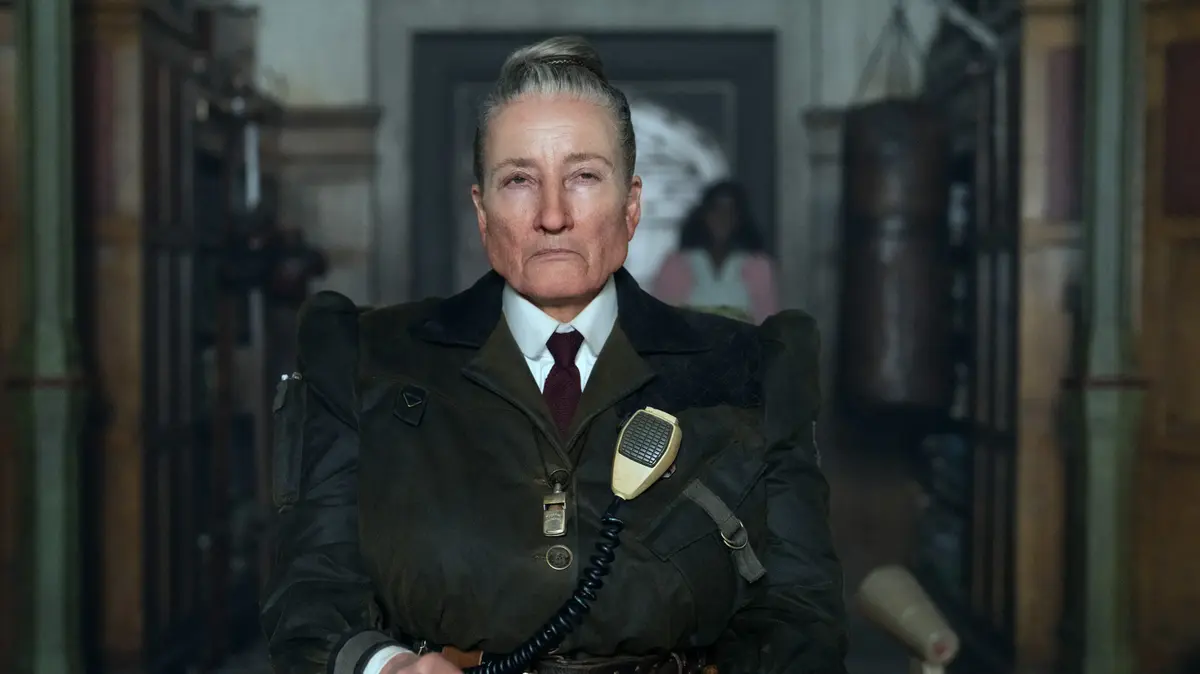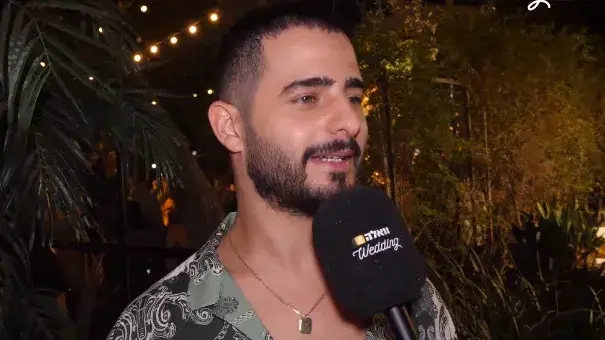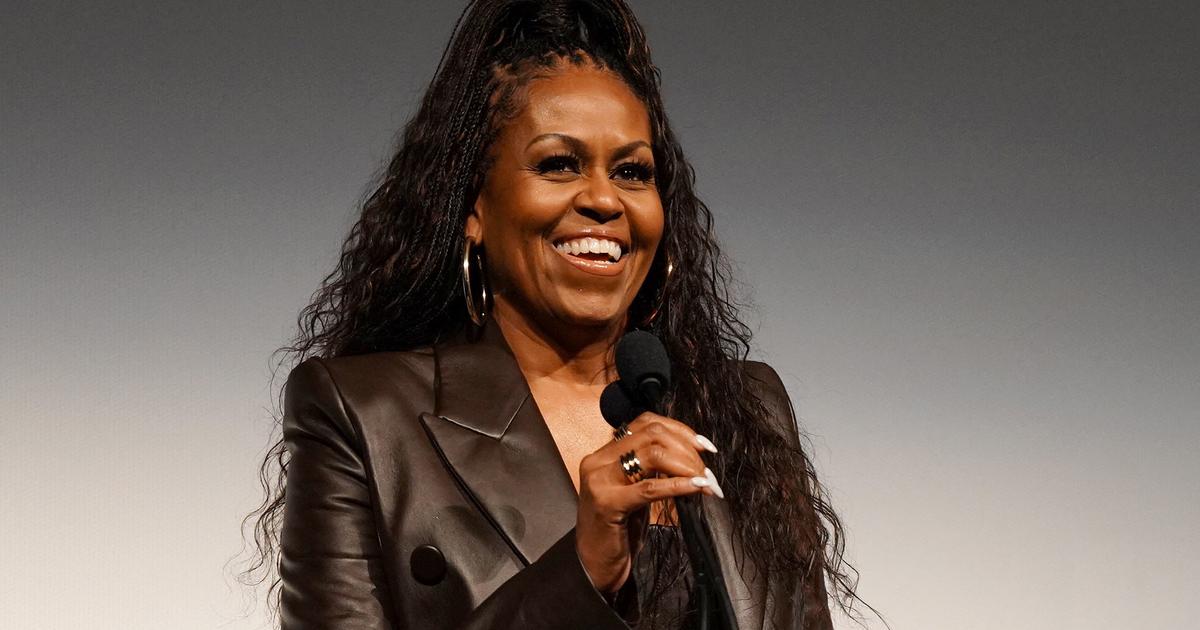"Even a stinker like Hitler will not treat the Jews without a reason."
Roald Dahl (Photo: GettyImages, Ronald Dumont)
In 1990, two years after he published the book "Matilda" - which was immediately accepted as a masterpiece - a letter from two girls from San Francisco landed in the mailbox of the revered children's author Roald Dahl.
"Dear Mr. Dahl, we love your books, but we have a problem... we are Jewish!! We love your stories but you don't love us because we are Jewish. It hurts us! Can you please change your mind about what you said about Jews. With love, Eliza and Tamar."
Despite the beautiful words of the innocent girls, the great rabbi did not change his mind about the Jews.
He passed away in November of that year, not before publicly clarifying in an interview with the British "Independent" that he was indeed a proud anti-Semitic.
"I am definitely anti-Israel, and I became anti-Semitic for the same reason that a Jew living in England supports Zionism," he said in the same interview, repeating racist statements against Jews such as: "It is impossible to tell the truth about Israel because there are no non-Jewish publishers anywhere, they control everything The media - a very smart thing to do - and that's why the president of the United States must also sell them weapons."
Let's jump in time 30 years after that interview, to one of the biggest content deals in television history, when the streaming giant Netflix decides to purchase the rights to 16 of Dahl's children's books for an amount estimated at one billion dollars (!) - and promises to create "an entire cinematic world around the author's work".
Miraculously, at the same time as the signing of the agreement that made the writer's heirs very rich, an official apology message from the Dahl family to the Jewish people was published on the late writer's official website.
More precisely, the word "published" is a bit exaggerated in this context.
The message was hidden so deep in the site that even the Google search engine can't find it.
In fact, in order to get an apology, you have to go to the search page on the website, and write the explicit word: "anti-Semitism".
Several Jewish organizations around the world protested, but as is the way of such protests, they were forgotten, just like Dahl's statements in which he justified the Holocaust.
"There is something in the character of the Jews that arouses immediate disgust," he said in an interview in 1983.
A little manageress with a mustache.
Emma Thompson in the role of "The Trunchbull" (Photo: Netflix)
Ironically, the same "Jews who control the media", did not demand to cancel Dahl's work - and even vice versa.
Less than a year after Dahl's death, Steven Spielberg acquired the rights to Dahl's book "The IG". Two different scripts were written for the film, but it took Spielberg another 15 years to complete work on the project. At the premiere of the film at the Cannes Film Festival in 2016, Spielberg was asked by journalists why he decided to adapt the work of an anti-Semitic author. Spielberg, the Jewish director of "Schindler's List" who founded the Foundation to Document the Visual History of the Holocaust in 1994, simply admitted: "When I took on the project, I knew nothing about the personal life by Roald Dahl.
I focused on the story he wrote, not on the things he said."
I wonder what the anti-Semitic Dahl would have thought of the film version of "Matilda", which was released in 1996 and became a cult over the years.
The lead role of Matilda starred the Jewish Mara Wilson, who was praised for her performance.
Matilda's parents were played by Danny De Vito, who also directed, alongside his wife in life at the time - see the Jewish Perlman.
Another handsome victory for the eternal people, who preferred to deal with Dahl's wonderful work instead of his toxic personality.
This month, the musical version of "Matilda" arrived on Netflix, which beautifully illustrates the world of today's cinema.
A high-budget film, which is based on a successful musical, which was based on the success of a film, which itself was an adaptation of a beloved book - which is distributed directly around the world via a streaming network (in the United Kingdom it was also shown in cinemas, and even had a good success at the box office).
More in Walla!
Film Critics Forum: "Sabaya Cinema" is the film of the year
To the full article
She could just as well have played Wednesday Addams.
Irish Alisha Weir in the role of "Matilda" (Photo: Netflix)
The decision to put the creative side of the film in the hands of the same people who made "Matilda" such a huge success in the West End and on Broadway turned out to be a successful one.
Director Matthew Werches, screenwriter Dennis Kelly and songwriter Tim Minchin returned to the scene of the crime - and proved they have no sentimentality for their joint creation, while tearing it apart and making it suitable for the big (or small, depending on which TV you have) screen. .
Half of the numbers performed on stage were cut from the film, while at the same time Minchin wrote and composed a new ending song for the film.
A great decision, in light of the fact that a film, compared to a play, does not end with the lowering of the screen and applause - and needs a more visual closure.
Minchin, who is best known for his (ripping) musical stand-up work, proves here to those who still need proof what a versatile musician he is.
"Matilda" is his tour-de-force, but rest assured that the Australian genius has not yet reached his peak.
More in Walla!
Brooke Shields: I was forced to fall in love and be naked with the star of "The Blue Lagoon" when I was 14
To the full article
A particularly grotesque Nazi who somehow wound up running a school.
Emma Thompson as "The Trunchbull" (Photo: Netflix)
Naturally, the film draws comparisons between Danny DeVito's 1996 version and the new version.
The fact that both films are available on Netflix only makes the comparison more tempting.
In essence, both films maintain the same basic plot line of the book: a girl born to estranged and unloving parents discovers that she has amazing mental abilities.
Already at kindergarten age, she finishes books full of the best English literature, and discovers amazing abilities in mathematics as well.
She is sent to a school with a tolerant and loving teacher named Miss Honey (in the Hebrew version of the book her name became "Miss Marshmallow"), and a violent and cruel principal named Mrs. Trunchbull (which was translated in Hebrew as "tropedros", which misses the allusion to the character's masculinity).
At school, she accidentally discovers that she possesses the ability of telekinesis to move things with the power of thought - something she uses to bring about a rebellious twist, until the best - and strangest - ending Dahl wrote in his books.
But while the general story remains the same, the films are completely different from each other.
There are of course small differences such as the fact that in the new version Matilda is an only child, while in the book and the previous movie she had an older brother.
In addition, Matilda's supernatural powers are much stronger and more diverse than the previous version (among other things, she receives visions of real stories that have happened to people) and there is of course the required ethnic diversity in the PC era, when Miss Honey, the most positive character in the story, is played by a black actress ( to the great Shana Lynch, remembered from Marvel and James Bond movies).
But the biggest difference is already in the title of the film.
This is "Matilda - the musical", with all that implies, and Minchin's songs that made the production so successful on stage make their way to the screen in a great way.
These are not only the great melodies and the genius lyrics (it is recommended to turn on the English translation on Netflix, so as not to miss all the puns that Minchin plants in the text) but also the amazing simple choreography that brings about 200 children to move together in an old English school together as if in a band dance "Riverdance".
It is not impossible that the scene where the children sing "Revolting Children" is one of the most beautiful cinematic moments seen on the screen in 2022.
More in Walla!
Detachment, Trust Sol, The White Lotus, Derry Girls: Series Parade 2022 - The Big Ten
To the full article
One of the most beautiful cinematic moments seen on the screen in 2022.
The disgusting children of "Matilda - the musical" (Photo: Netflix)
That doesn't mean everything is perfect.
Something in the strangeness of Roald Dahl that runs through all his books was not able to reach the film, and was replaced by a kind of gloomy cloud.
Dahl knew how to write through the eyes of children, who see the lives of adults as something strange and unfathomable.
Although she is a genius, Dahl's Matilda was still a child full of innocence, who exchanged human warmth for reading books.
In the movie Matilda is much more sophisticated than her age, more cunning and at times even creepy.
Irish Elisha Weir, who plays 5-year-old Matilda, was 12 years old at the time of filming.
Her childlike charisma is captivating, but it's hard not to ignore the fact that she could just as well have played Wednesday Addams.
As far as fun and campiness goes, the 1996 film version still takes, despite the lack of great choruses.
Above all, as always, the figure of the Trenchbol stands out.
In the musical in London, the creators consulted with a psychologist about the question: how is it possible to play day after day (and sometimes twice a day) one of the most terrible and cruel characters in the history of literature?
A murderous swindler who stole an orphan's inheritance, before becoming a school principal who molests students, impales children in closets, and kicks 5-year-old girls out of school by grabbing their braids.
The answer the creators arrived at was simple: casting a man for the role.
And so, after years of complaints about the character's misogynistic writing, the musical began to absorb claims that it was transphobic.
This is the period.
Apparently you can't really practice art without offending a group of people.
In an informed decision, the filmmakers decided to withdraw from the casting of a man for the role of the immortal manager - and landed Oscar winner Emma Thompson for the role.
As usual, Thompson gives a wonderful acting performance, but due to the many visual props that should help viewers understand that this is a monstrous character (among other things, Thompson walks around the entire film with a mustache), something of Dahl's original innocence is lost.
While in the book one can wonder if the descriptions of the headmistress are based on childish exaggerations, until at the end we discover the truth about her - the film simply presents her as a kind of particularly grotesque Nazi who somehow wound up running a school.
A relaxed and fun display.
Andrea Riseborough and Stephen Graham as Matilda's parents (Photo: Netflix)
And in any case, whether it manages to capture the spirit of the book or not - the musical version of Matilda is great viewing.
The musical numbers alone are worth watching, and the supporting characters (especially Andrea Riseborough and Stephen Graham in the role of Matilda's parents) give a loose and fun display.
The real minus in the film is the exclusive distribution on Netflix.
Such a great show deserves to be seen on a really big screen, it's a shame that the very choice to experience this magic in a movie theater was taken from us.
in the small
Roald Dahl's books have become children's classics precisely because they do not treat readers childishly.
Dahl's social satire does not fall short of that of Dickens, and it can create a healthy dialogue between children and parents regarding concepts such as poverty, violence, economic inequality, tolerance, self-determination, and more.
Apparently, with the exception of the Bible, there is no other place where children can learn moral lessons for life like in Willy Wonka's factory, and there it comes with a whole magical chocolate kingdom - so think for yourself which book children will relate to more.
The decision of Netflix in Israel to make the film accessible to small children through a version Dubbed is a big celebration, which is done in a very proper way. It's really not an expected decision, especially when you consider how hard work Shahar Kadosh had in the impossible task of translating Tim Minchen's tongue games into Hebrew.
Either way, if you have small children - read them a Roald Dahl book, or at least let them watch this movie on Netflix.
In the future you will be able to tell them that just as Dahl wrote - in the world of adults there are many monsters who wear all kinds of sophisticated costumes, like for example a beloved children's writer who said that the State of Israel reminds him of the "good and beautiful days of Hitler and Himmler".
But what to do, sometimes monsters know how to write the most human stories.
culture
Theater
film review
Tags
Roald Dahl
Netflix








/cloudfront-eu-central-1.images.arcpublishing.com/prisa/MI23BCFOBJATJDOOM7KTWZGRLU.jpg)